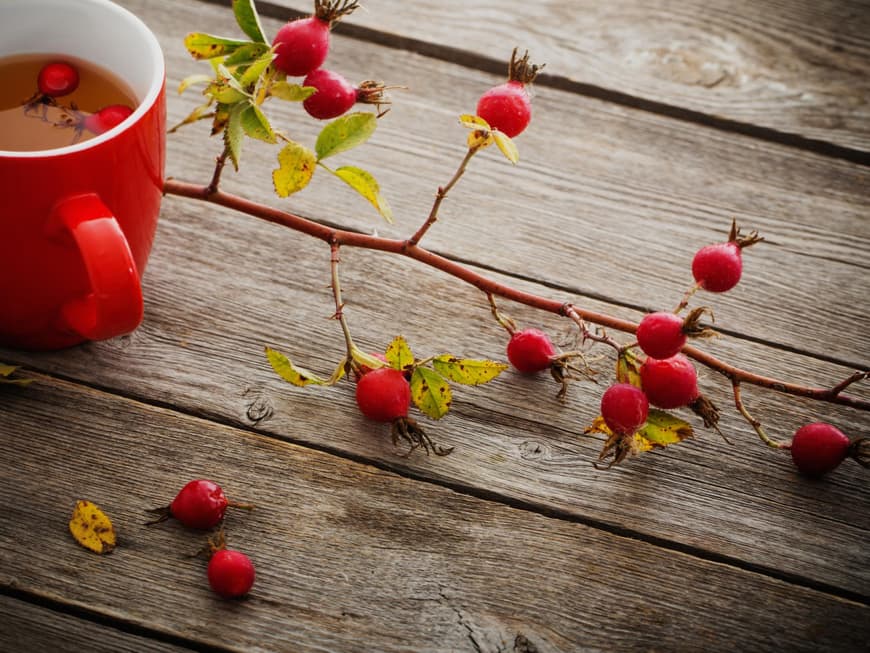
Vitamin C Rosehips contain an extremely high amount of vitamin C - more than citrus fruits and sea buckthorn. 100 grams provide around 1,250 mg of vitamin C. In comparison, a lemon has only 50 mg of vitamin C per 100 grams. Rosehips also contain the red pigment lycopene - this active ingredient has been proven to prevent cancer.
They also contain theminerals zinc, copper, sodium, phosphorus, iron, calcium and magnesium - as well as tannins and silicic acid. Omega-3 fatty acids and carotenoids reduce moisture loss from the skin and can help with acne, while silicic acid supports the formation of new connective tissue.
Preparation It is best to remove the seeds before boiling. To dry the fruit for tea, spread the coarsely chopped berries out on a cotton cloth to prevent them from going moldy. Later, brew 2-3 teaspoons per cup with 250 ml boiling water and leave to infuse for 10 minutes.






